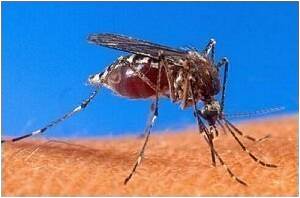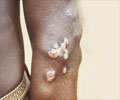A training program will help approximately 35,000 first responders and workers protect themselves while also minimizing the spread of disease to others.

‘A training program will help first responders and workers protect themselves while also minimizing the spread of infectious disease to others.’





Linda Birnbaum, NIEHS director, said, "This new training program will help workers, who do so much to protect others, stay safe when working with patients or people in high risk situations." The NIEHS Worker Training Program (WTP) will oversee the Ebola Biosafety and Infectious Disease Response Training, which will educate health care workers, as well as personnel in waste management, transportation, mortuaries, and other occupations with the potential for infectious disease exposure. The environmental infection control practices and hazard recognition skills taught will be applicable to any high risk infectious disease that can be easily transmitted person to person and may result in high mortality rates.
"When we think of occupations that may be exposed to infectious disease, airport workers or custodial employees may not initially come to mind," said Joseph "Chip" Hughes, WTP director. "Yet all of these occupations have an important role in minimizing disease transmission, and they need to know how to protect themselves so they don't get infected or spread diseases to their families or communities."
The need for curriculum development and training was identified during a 2014 Institute of Medicine workshop about Ebola virus. In addition to NIH and CDC, other federal partners include the U.S. Department of Health and Human Services Office of the Assistant Secretary for Preparedness and Response, and the Occupational Safety and Health Administration.
"Ensuring training and competency of workers in a variety of settings is a critical safety net in preparing for emerging infectious disease threats," said Beth Bell, director of the CDC National Center for Emerging and Zoonotic Infectious Diseases. "We are pleased to be partnering with NIH and their grantees to fill this training need."
Advertisement
Source-Newswise















